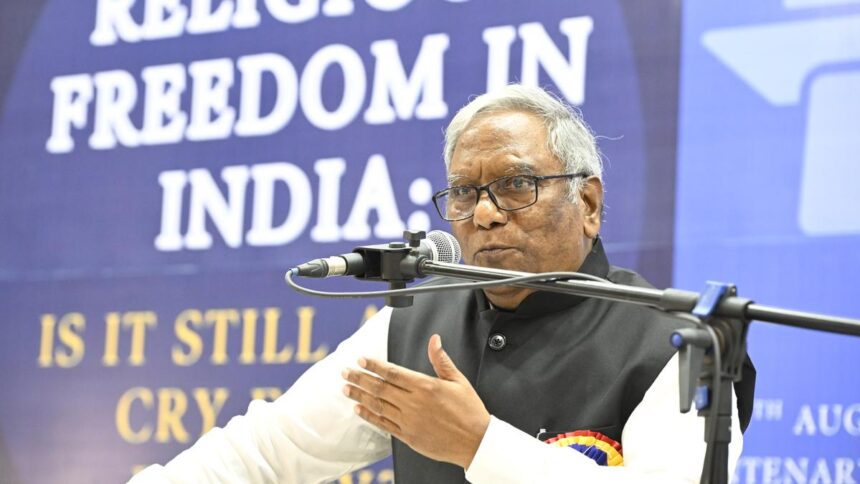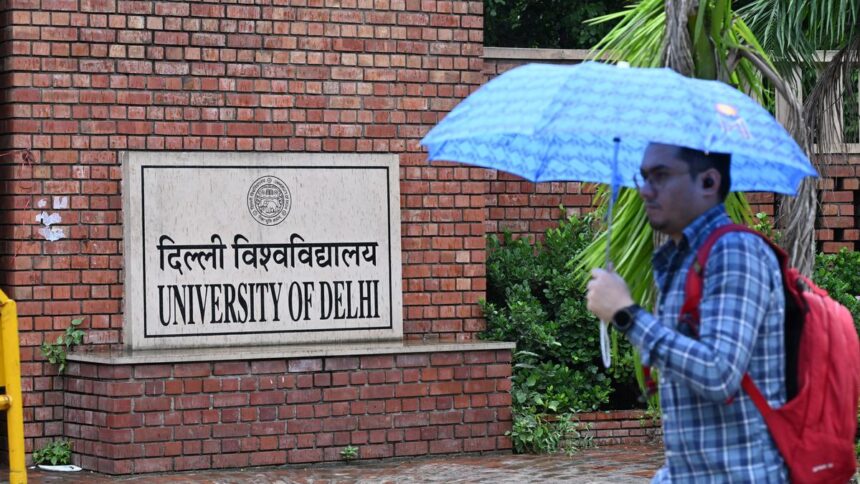
Rescued dogs inside cages at a local animal welfare NGO in New Delhi.
| Photo Credit: Reuters
After the Supreme Court ordered that all stray dogs be caught and housed in shelters, a quiet crisis is unfolding in Delhi’s Animal Birth Control (ABC) centres – overcrowded kennels, collapsing infrastructure, delayed payments, and overworked staff pushed to breaking point.
The Timarpur centre, run by the NGO Neighbourhood Woofs, reached capacity within a day of the order on Monday. “We have kennels for about 100-120 dogs, all full, and can keep only 50-60 more unkenneled. If we can’t release vaccinated dogs, there’s no space left for sterilisation surgeries,” said founder Ayesha Christina Benn.
The facility, allotted by the MCD in 2016, spans 12,000 sq. ft., but only 66 sq. ft. is dedicated to kennels. Ms. Benn described collapsed drainage, rat infestations spoiling medical supplies, and no rabies isolation ward. Her team handles sterilisation for seven wards, covering 500-600 dogs a month.
Of the 20 ABC centres run by NGOs with the MCD, only 13 function. The Hindu visited several and found many under repair, understaffed, or lacking basic veterinary equipment. Some were operating well beyond capacity, with post-surgery dogs roaming freely for lack of kennels.
At Lajpat Nagar, the Animal India Trust’s centre was under repair after a roof collapse. “We get ₹1,000 per dog from the MCD, but actual costs are about ₹2,600,” said veterinary doctor Sarungbam Yaiphabi Devi. “Payments are delayed by six to seven months. We bear costs for doctors, staff, electricity, food, and repairs. Since MCD provided the infrastructure, they should cover repairs, but we pay,” Ms. Devi said.
In Masoodpur, there is no resident veterinary doctor. “We use an NGO van because MCDs are non-functional. I was bitten during a pickup. Dogs are scared and aggressive,” said one worker, who did not want to be named. He added that wire nooses are sometimes unavoidable when dogs resist capture.
The Animal Welfare Board of India’s (AWBI) guidelines specify that ABC centres are not shelters. They must sterilise, vaccinate, treat, and release dogs to their original locations. Activists say long-term sheltering derails anti-rabies work. “Places like Goa and Sikkim became rabies-free without shelters, just strong ABC programmes… The focus must remain on sterilisation and vaccination,” said activist Ambika Shukla.
Deep structural issues persist. Kennels often fail AWBI’s size norms, rabies isolation wards are absent, and repairs rely on CSR funds or public donations. Multiple NGOs advocate dog geotagging, microchipping, and real-time monitoring to ensure vaccinated animals are returned.
For workers, the strain is mounting. “Some dogs take three months to recover, and sometimes the community refuses to take them back… We don’t have the space or money. The ₹1,000 we get doesn’t even cover half the cost,” said a Masoodpur staffer.
“With proper monitoring, awareness, and funds, we could reach 100% vaccination coverage. Right now, we’re trying to make the impossible possible,” said Ms. Benn.
Published – August 13, 2025 01:49 am IST






















